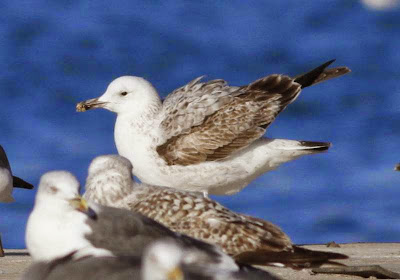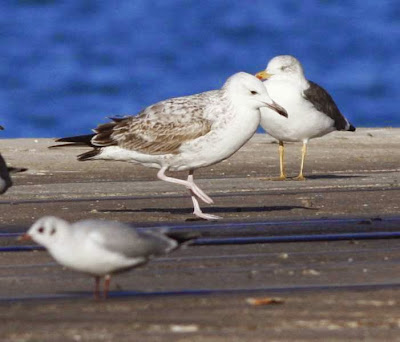This individual does not fit to any of the species the bird ressembles, Herring gull (L. argentatus) or Yellow-legged gull (L. michahellis). For the first, the primary pattern is not the right one, since the white spots on the outer web of the inner primaries is well defined and not difus at should be, in addition, the outer greater coberts became not much pattern at the base, the head is massive and white with a obvious shadow around the eye. For Yellow-legged, the birds shows a wrong backround colour, more Herring gull-like, the primary projection is short, the black of the base of external tail feathers is very wide and not well-defined and the tertials show a "biten" design and the underwing design is very soft. In addition the post-juvenile moult is very restricted, no including any covert, and it looks like maybe even some old scapulars are left...
Many thanks to Chris Gibbins for comments on the bird!!
Any additional comment will be welcomed.
















.jpg)
.jpg)
.jpg)
.jpg)
.jpg)
.jpg)
.jpg)
.jpg)

.jpg)
.jpg)
.jpg)











.JPG)




.JPG)
.JPG)
.JPG)




